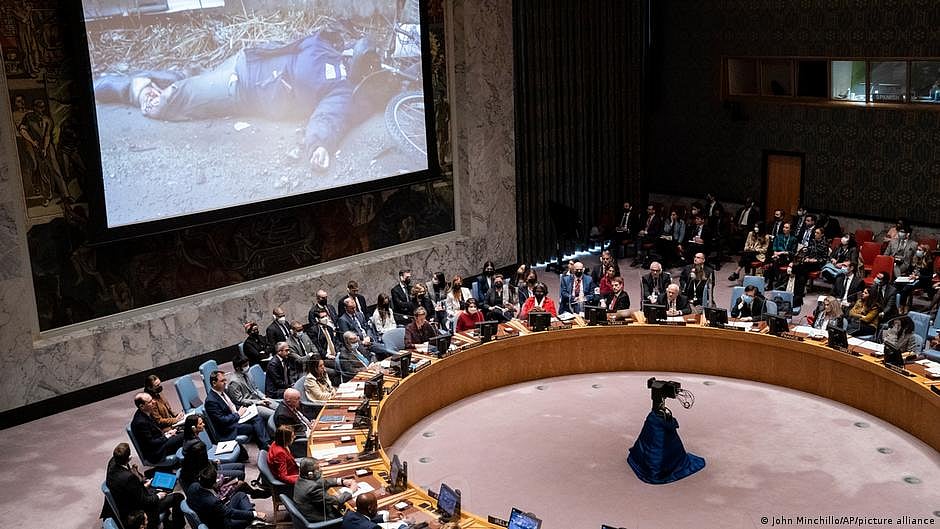World
UN Security Council backs Trump’s Gaza plan, approves international stabilisation force
The resolution, put to vote in the 15-member Council on Monday evening, passed with 13 votes in favour

The UN Security Council has adopted a US-drafted resolution endorsing US President Donald Trump’s Gaza peace proposal and authorising the creation of an international stabilisation force for the enclave, a move Trump hailed as a “moment of true historic proportion”.
The resolution, put to vote in the 15-member Council on Monday evening, passed with 13 votes in favour. China and Russia abstained. It formally backs Trump’s Comprehensive Plan to End the Gaza Conflict, unveiled on 29 September, which aims to transform Gaza into a “deradicalised, terror-free zone” and rebuild the territory for the benefit of its residents.
Central to the plan is the creation of a Board of Peace (BoP), a transitional administration with international legal authority responsible for setting the framework for reconstruction and coordinating global funding. Trump, writing on social media, welcomed the Council’s endorsement and said he would chair the Board, which he claimed would include “the most powerful and respected leaders throughout the world”.
The vote came on the eve of Trump’s meeting with Saudi Crown Prince and Prime Minister Mohammed bin Salman at the White House.
UN Secretary-General António Guterres, through his spokesperson Stéphane Dujarric, described the adoption of the resolution as an “important step” in consolidating the ceasefire. He urged all parties to adhere to the terms and highlighted the need to move swiftly into the plan’s second phase, a political process aimed at achieving a two-state solution.
The UN said it remained committed to expanding humanitarian operations and supporting efforts to transition Gaza into the next phase of the ceasefire.
US secretary of state Marco Rubio called the resolution a “historic milestone” toward establishing a peaceful and prosperous Gaza governed by Palestinians rather than Hamas. Washington’s UN Ambassador Mike Waltz said the resolution marked another “significant step” toward a stable and secure Gaza.
Published: undefined
Waltz added that the Board of Peace would coordinate humanitarian assistance, oversee Gaza’s redevelopment, and work alongside a technocratic Palestinian committee to manage daily administration while the Palestinian Authority pursues governance reforms.
The resolution also sets out guidelines for countries contributing troops to the International Stabilisation Force and outlines mechanisms for global financial institutions to support long-term investment.
Russia’s permanent representative Vassily Nebenzia sharply criticised the resolution, likening it to “yet another pig in a poke”. He said the Council was effectively placing Gaza “at the mercy” of the Board of Peace and a stabilisation force “whose working methods are still unknown”.
Nebenzia warned that the initiative must not become a “smokescreen for unbridled experiments by the US and Israel” or undermine prospects for a two-state solution.
According to the US plan, the conflict would end immediately if all parties accept the proposal. Israeli forces would pull back to an agreed line in preparation for a hostage release, while all military activity, including aerial and artillery strikes, would be paused. Battle lines would remain static until conditions for a full withdrawal are met.
Within 72 hours of Israel’s public acceptance, all hostages, both living and deceased, would be returned.
The plan also outlines a major economic development programme to rebuild Gaza, drawing on Middle East urban development experts. It proposes a special economic zone offering preferential tariff regimes and emphasises that “no one will be forced to leave Gaza”, with residents free to stay, depart, or return.
The proposal says it will encourage Palestinians to remain and “build a better Gaza” under a new governance and security framework.
With PTI inputs
Published: undefined
Follow us on: Facebook, Twitter, Google News, Instagram
Join our official telegram channel (@nationalherald) and stay updated with the latest headlines
Published: undefined